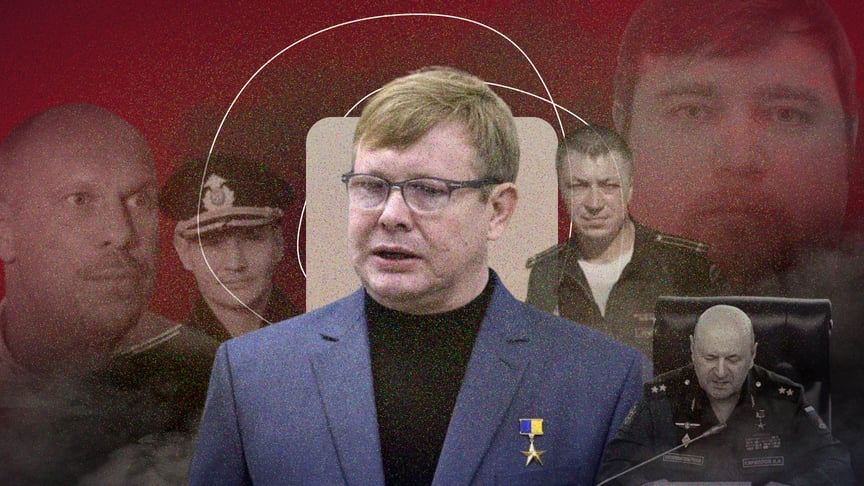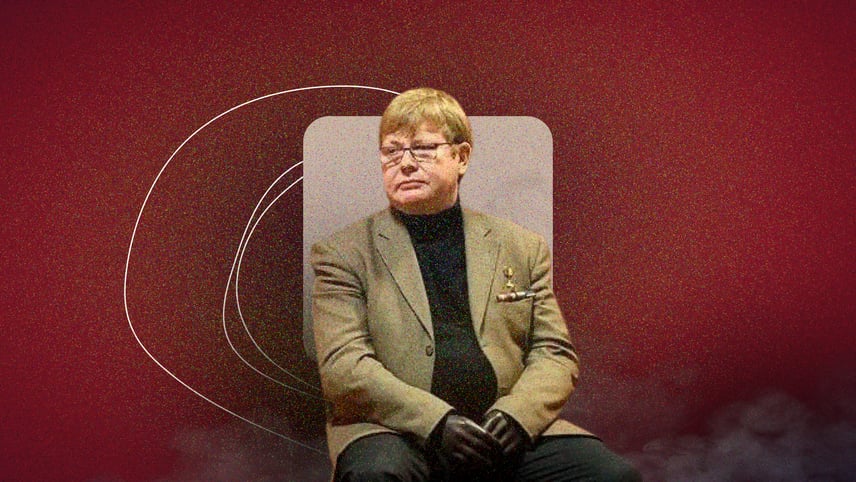Operation "Liquidation": Who is eliminating Russian war criminals and Ukrainian traitors?

In this conversation, we do not disclose data that is classified or could harm Ukraine's defense capabilities.
A Mercenary is Just a Profession
Vladimir, who carries out our special operations against the Russians and traitors of Ukraine?
When it comes to the territory of Russia, I would categorize these individuals into three groups.
The first group consists of mercenaries who are only interested in money. We hire them, in particular, through their online communities, via specialized websites where they offer their services or respond to our proposals. They complete the order, receive payment — and that's it.
The second category includes former career officers of the Russian army and intelligence services.
The third group comprises residents of the area where the special operation is planned. Ordinary people who are willing to set fire to a communication cabinet on the railway for 20,000 rubles.
What about the career officers of Ukrainian intelligence services?
Even before the full-scale war, we stopped sending them to operate in Russia because there was a lot of betrayal surrounding these operations: Russians were arresting our officers literally during passport control.
However, with the onset of Ukrainian military actions in the Kursk region, our reconnaissance officers entered Russia along with special forces. They are currently establishing a logistics and communication network to support our special operations throughout Russia. They have already reached Vladivostok. Transmitting weapons, explosives, and intelligence data is their responsibility.
Do mercenaries always understand who their client is and why it is necessary to eliminate that specific person?
They might guess by finding out who their target is, browsing websites about them. But for people who work solely for money, such information is not important. What matters to them is the price of the order and the location of the target.
Are all such mercenaries professional killers?
Of course not. Among them are professional killers from the criminal world. There are also retired officers from the Russian army. And there are regular civilians for whom we organize the appropriate training courses, providing them with weapons and ammunition.
Modern explosive devices are very simple. A few minutes of instructional video is recorded, the executor receives the necessary equipment and devices. Nothing complicated — just plant the mines and detonate them remotely. They have two or three buttons: one on the mine to activate it, and two on the remote control.
If we are talking about civilian mercenaries, who are they?
They are diverse individuals. For example, a Ukrainian shot and killed the commander of the Russian submarine "Krasnodar," Stanislav Rzhitsky, in Sochi, who had previously moved to Russia for family reasons and voluntarily participated in the operation.
They can also be people who desperately need money and cannot earn it any other way. These are individuals from the criminal world, some of whom even fought against Ukraine at one time. They can be alcoholics or drug addicts, students, and pupils…
So when selecting executors, do we not worry about the moral aspect?
We focus on results. And the most effective are often the drug addicts. Of course, you wouldn't send them to eliminate pilots who bombed civilian targets in Ukraine. But they need money for their fix — and they won’t just set fire to a military enlistment office or some cargo on the railway; they will do it for a relatively small amount of 5,000 to 10,000 rubles, sometimes 50,000 rubles.
How reliable are drug and alcohol addicts as executors?
I don't recall any instances of drug addicts betraying us. For a dose, they become the honest side of agreements; we keep them on a hook. However, alcoholics and the youth are less reliable. They may betray out of fear. Especially Russian youth. We hardly trained them, providing brief instructions, because we had to organize a continuous mass campaign of arson against Russian communications and enlistment offices.
Moreover, we were confident that the war would soon end and nothing would happen to these guys. We were wrong. Now we pay Russian youth more money than drug addicts. Sometimes up to 20,000 dollars.
Who sets the rates for the executors?
There is a market for certain services — it sets the rates. Usually, the payment for a specific order is determined during preliminary communication with the executor. There is a starting amount, and then there is bargaining.
Are we bound by any financial limit in these operations?
No. Since 2014, we have eliminated about three dozen Russian generals. Ukraine, as a victim of aggression, cannot afford to economize on such actions.
Are mercenaries only paid after completing the task?
It varies. If we are confident in the executor, they may receive up to 10% in advance.
Can the Russian side stage the liquidation of our enemy?
There have been cases where Russian special services learned about the preparation of a special operation, or the executor betrayed us and went to the FSB. In those instances, the FSB staged a liquidation show, took photos of the "dead," etc., while we paid the executor. But these are literally rare cases. It is impossible to safeguard against them: conducting special operations is a roulette game. Everything can fall apart at the last minute.

Just called the mobile number of the mine...
During the liquidation of a war criminal and collaborator, is the preference given to bullets or explosives?
In the occupied territories, we currently work only with explosives. A killer with firearms is a very high-level professional, meaning either special forces or from the criminal world. We have few such specialists. We don't risk using them; we keep them for exclusive tasks.
Some liquidations are even carried out with a hammer. But you can't get that close to a Russian officer to smash his skull or shoot him with a pistol.
When our mercenary wants to leave the territory of Russia after an operation, do we help him?
We help those with ideological motives. But not all of them know how to take advantage of our help. I'll share a story that happened in Tatarstan. At one of the refineries, we found an ethnic Ukrainian who had long acquired Russian citizenship. He was supposed to plant a mine at his workplace. After that, he was to take a train to the Russian-Kazakhstan border and cross it. They even bought him a train ticket.
The mine exploded, he reached the border — and the Russian special services caught up with him there. They figured out who among the refinery workers could have planted a mine in such a place and began checking each of them. They came to check on our agent, but the apartment was empty and there were no belongings. They declared him wanted — border guards detained him at the checkpoint in Kazakhstan.
There are vast areas along the Russian-Kazakhstan border that are unguarded, but this person chose to go through the official checkpoint. That was our and his mistake.
Each liquidation is a success story in itself. What contributed to, for example, the liquidation of General Kirillov?
A scooter with a remote-controlled mine using a mobile phone was left by the entrance where the general lived. Our mercenary armed the mine and left. A camera was set up in a nearby car, and our man saw everything happening in front of Kirillov's entrance in real-time.
When the general came out of the building, the mine was detonated from another country by calling the mobile number of the mine. Setting this mine trap was not difficult — the general lived in an apartment building without special security. Kirillov's personal bodyguard was the first to exit the building — and that was all the precaution taken. No one paid attention to the scooter.
Stanislav Rzhitsky, by the way, got caught because he posted his running routes on social networks. And he ran without security.
On December 9, 2024, the head of the Olenivka Colony, Sergey Evsyukov, died due to a car explosion. On November 13, in Sevastopol, a car with the captain of the Russian Black Sea Fleet Valery Trankovsky was blown up; he also died. On March 7, in Berdyansk, the car of the collaborator Elena Ilyina-Samoylenko was blown up. She survived. Why do not all explosions result in liquidation?
It depends on the type of device used and the placement of the explosives. In the case of Trankovsky, for example, it was a magnetic mine